Want to Learn More?
As a biology major at Cedar Crest College, we see you as an important part of a community of women scientists who learn by doing—gaining knowledge, experience, and confidence throughout your years here. Enrolling in our biology program will prepare you for entry into graduate studies in the biological sciences, as well as medical school, the field of education, or the workplace.
Earning your B.S. degree in biology will provide you with opportunities to:
Conduct hands-on research. You will begin participating in research as a first-year student, and you will do an independent research project or engage in research with a faculty mentor as early as your sophomore year. Some of Professor Richard Kliman’s students are involved in a research project (joint with researchers at Duke University) that is examining genetic recombination and molecular evolution in fruit flies.
Utilize first-rate laboratory facilities. Learn and do research with sophisticated instrumentation currently being used in the workplace.
Learn and practice leadership. Through coursework, research and presentations, you will develop essential leadership skills. As an upper-class student, you will also have the opportunity to mentor first-year students by serving as a research director for their research projects.
Apply for competitive internships. During the summer following your sophomore year, you may apply to participate in field experiences such as those provided by the National Science Foundation’s Research Experience for Undergraduates program.
How To Apply
Ready to apply?

Dive A Little Deeper
Upcoming Admissions Events
Concentrations
While earning a bachelor of science in biology at Cedar Crest College, you may choose to extend your studies. Among your many options are:
- A bachelor of science in biology with a secondary education co-major
- A bachelor of science in biology combined with a minor in chemistry, global diseases, math, or public health
- A bachelor of science in biology combined with a non-science major or minor, such as dance or global studies
- A bachelor of science in biology with a pre-health professions concentration
- A bachelor of science in biology earned in 3 years combined with a 4 year Doctor of Audiology or Doctor of Optometry at Salus University
- A bachelor of science in biology combined with a Physician Assistant or Blindness and Low Vision Studies Masters Degree at Salus University

Program Mission Statement
Within the broader mission of the Department of Biological Sciences, the mission of the biology major is to promote an understanding of the structure and function of, and the interrelationships among, biological systems. To accomplish this mission, students study biological systems at all structural levels of the biological hierarchy: molecules and cells; organisms; populations, communities, and ecosystems.

Program Requirements
A minimum cumulative grade-point average of 2.0 and a minimum average in the major of 2.0 is required for the major and minor in biology. A grade of C- or better is needed for all courses that fulfill the departmental requirements. Courses transferred in for all majors must be taken less than 10 years ago. Students may not declare multiple majors in any combination of biology, biodiversity, and conservation biology, genetic engineering, or neuroscience. Students majoring in the biological sciences may not minor in biology. Students must earn a grade of C- or better in prerequisite courses before proceeding to subsequent courses.

Independent Research and Thesis Requirements (Optional)
All students majoring in biology will have the opportunity to conduct genuine research within our courses and by joining a faculty member’s research program. Many students conduct research for all four years.All students, particularly those who are interested in attending graduate school or obtaining a research-based job following graduation, are highly encouraged to participate in independent research, which may culminate in a thesis.
The thesis option begins during the student’s junior year as part of the Junior Colloquium (BIO 350). As part of the thesis option, students will develop a research proposal to investigate an original research question. This experience allows the students to go beyond the basic course information, select a problem that interests them, and apply what they have learned in their coursework to a novel situation.
As part of the thesis option, students will spend a minimum of two semesters working with a faculty member to conduct the research outlined in their proposal. They will then develop a written thesis detailing their project and present their final project to the department in the form of a seminar talk or poster.
The title of a student’s thesis will appear on her transcript if she completes two semesters (4 credits) of Independent Research (BIO 353) and one semester (1 credit) of Senior Thesis and Presentation (BIO 354) with grades of C- or better.

Accreditation
Cedar Crest College is accredited by the Middle States Commission on Higher Education; 1007 North Orange Street, 4th Floor, MB #166, Wilmington, DE 19801
Faculty & Staff
Who’s teaching you is as important as the curriculum you choose.
Let’s put a face to some of the names you’ll be seeing on the course listings!
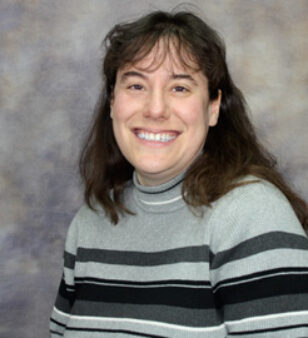
Audrey Ettinger
Chair of Biological Sciences; Associate Professor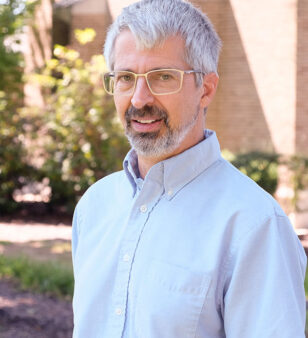
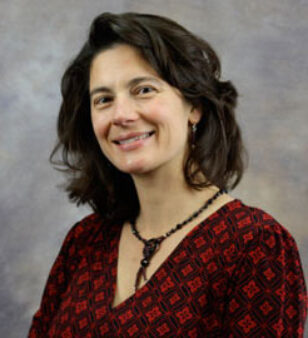
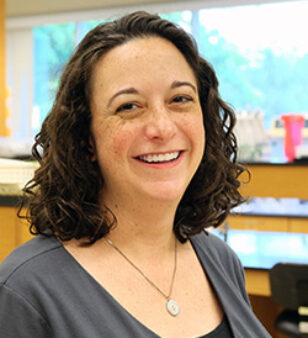
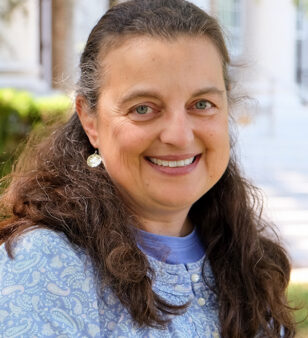



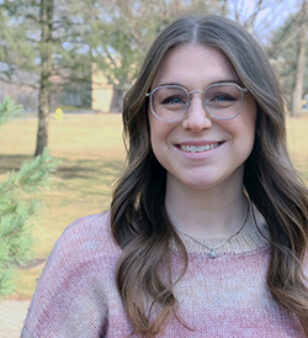
- Traditional Admissions
- admissions@cedarcrest.edu
- P: 800-360-1222
- F: 610-740-3780